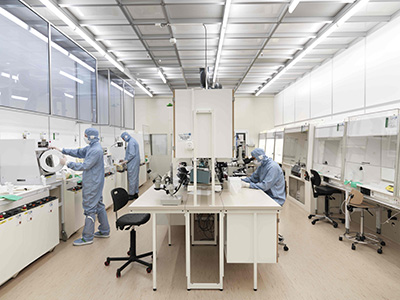The clean room at focus of the project Nanonets2Sense
The work to find out how to minimize sensors to simplify medical analysis methods continues. KTH has now been commissioned to develop a technology which could revolutionize the health care system.
Behind the initiative is the Horizon2020-programme for research and technological development, which is EU's main instrument for funding research in Europe. Scientists and engineers from five different European countries and four different research institutes have come together with the goal of developing a product that can give patients point-of-care analysis.
Today, adults who want to measure their glucose levels can get the data with sensors in the body directly to their mobile phone, without having to see their doctor.
- In many other cases, advanced analysis requires large analytical labs and the patient to be in the hospital. Would we be able to develop a product that requires a small sensor, but can, for example, diagnotisize multiresistant bacteria, it could mean that the patient quickly could get the care needed and minimize the risk of infecting others, "says Associate Professor Per-Erik Hellström, responsible for the project at KTH.
The Grenoble INP has already developed sensor materials, nanowires of silicon, which are very good at detecting DNA molecules. But the sensor material itself contains no intelligence. The Austrian (ams AG) leader inCMOS manufacturing services for high volume manufacture offers this kind of intelligence sensors. How these two should be put together is a challenge for manufacturers of sensors and that's where the KTH clean room fall into focus, by helping these two processes to become one.
-We shall develop a process in the clean room for the sensor and electronics for this technology to become a product that can be used. It's super exciting research, with various aspects and where researchers from different research perspectives, come together and work to develop a product which is small enough and can be customized to detect specific molecules. If we could find this product it would be revolutionary for the health care system, "says Hellström.
The project has also an advisory board which is made up by doctors from Cambridge University Hospital in England and researchers from the Karolinska Institutet, who will lead the researchers through the project that will last for three years.


